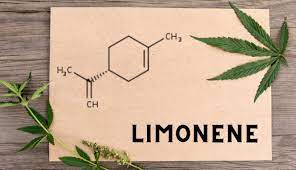How Healthy Are Synthetic Hormones: An Ultimate Guide
In the pursuit of health and vitality, the use of synthetic hormones has become a topic of increasing interest and debate. From performance enhancement to medical treatments, these artificially produced substances play a significant role in various aspects of our lives. In this ultimate guide, we’ll delve into the intricacies of synthetic hormones, exploring their uses, potential benefits, and the critical question of their impact on overall health. Specifically, we’ll touch upon the noteworthy synthetic hormone GHRP-6, shedding light on its applications and potential implications.
1. Understanding Synthetic Hormones: The Basics
Synthetic hormones, as the name suggests, are artificially created substances designed to mimic the functions of naturally occurring hormones in the human body. These hormones can serve a range of purposes, from addressing hormonal imbalances to enhancing athletic performance. Common examples include synthetic versions of growth hormone, testosterone, and thyroid hormones. The primary goal is to modify or supplement the body’s hormonal activities for therapeutic or performance-related objectives.
2. Medical Applications of Synthetic Hormones
In the realm of medicine, synthetic hormones have proven to be invaluable. They are often prescribed to individuals with hormonal deficiencies or imbalances, providing a targeted and controlled approach to managing health conditions. For example, synthetic thyroid hormones are commonly prescribed to treat hypothyroidism, restoring the body’s thyroid hormone levels to normal. In a medical context, the use of synthetic hormones is carefully regulated, with dosages tailored to individual needs and monitored under the guidance of healthcare professionals.
3. Performance Enhancement and Risks
Beyond medical applications, synthetic hormones are frequently associated with performance enhancement, especially in the realm of sports and bodybuilding. Athletes may turn to synthetic hormones like anabolic steroids to increase muscle mass and strength. However, the misuse of these substances can lead to serious health risks, including cardiovascular issues, liver damage, and psychological effects. It’s crucial to recognize that the quest for enhanced performance through synthetic hormones comes with potential dangers and should be approached with caution.
4. Risks and Side Effects of Synthetic Hormones
The use of synthetic hormones, including GHRP-6, is not without risks. Side effects can range from mild to severe and may include cardiovascular issues, hormonal imbalances, and psychological effects. The long-term consequences of using synthetic hormones are still not fully understood, and the lack of regulation in non-medical contexts raises concerns about the potential for misuse. Users must be aware of the associated risks and make informed decisions in consultation with healthcare professionals.
5. Regulation and Ethical Considerations
The regulation of synthetic hormones varies significantly between medical and non-medical contexts. In medical settings, these substances are subject to strict oversight and prescribed based on individual health needs. However, in non-medical contexts, such as sports and bodybuilding, the use of synthetic hormones often occurs in a regulatory gray area. Ethical considerations come into play, raising questions about fair competition, health risks, and the potential impact on the integrity of the activity or sport.
6. How to Buy Synthetic Hormones: Navigating a World of Options
Embarking on the journey to purchase synthetic hormones, including the widely sought-after GHRP-6, is an empowering endeavor for health-conscious individuals. The online market, marked by a diverse array of choices, proudly offers enticing opportunities like GHRP-6 for sale at a portion of the price. This positive abundance of options signifies the accessibility and availability of synthetic hormones to those seeking to optimize their health and well-being. While ensuring a cautious approach, consumers can embrace the convenience of online platforms, reveling in the prospect of selecting reputable sources that prioritize rigorous testing and unwavering safety standards. This optimistic perspective allows individuals to make informed choices, contributing to a dynamic market that values both efficacy and the health of its consumers.
7. Emerging Trends in Hormone Replacement Therapies
As technology advances, new trends in hormone replacement therapies (HRT) are emerging. Precision medicine approaches are tailoring hormone treatments to an individual’s unique genetic makeup, optimizing effectiveness, and minimizing side effects. Personalized HRT may mark a shift towards more targeted and safer synthetic hormone interventions.
8. The Intersection of Hormones and Mental Health
Recent research is shedding light on the intricate relationship between synthetic hormones and mental health. Hormone imbalances, whether due to medical conditions or external interventions, can impact mood, cognitive function, and overall mental well-being. Understanding this connection is crucial for individuals and healthcare providers navigating the complexities of hormone treatments.
9. Future Challenges and Opportunities
Looking ahead, the field of synthetic hormones faces both challenges and opportunities. Striking the right balance between accessibility and regulation, harnessing technological advancements for safer interventions, and addressing ethical considerations will be pivotal. The evolving landscape invites ongoing dialogue, research, and collaboration to shape a future where synthetic hormones can contribute positively to health without compromising safety.
In the intricate journey through the realm of synthetic hormones, our exploration has uncovered the multifaceted nature of these artificially created substances. From their medical applications, where they prove invaluable in addressing hormonal imbalances, to the performance-enhancing realm, where caution is paramount due to associated risks, synthetic hormones occupy a central space in the landscape of health and wellness.
The buying process, emphasizes the positive accessibility of synthetic hormones. While acknowledging the need for caution and adherence to safety standards, the plethora of options allows consumers to actively engage in their health journey, making informed choices from reputable sources.
Looking ahead, the landscape of synthetic hormones holds both promise and responsibility. Emerging trends, such as personalized hormone replacement therapies and a deeper understanding of the intersection between hormones and mental health, pave the way for a future where these substances can positively contribute to well-being. As consumers navigate this complex terrain, it is crucial to prioritize authenticity, adhere to regulatory guidelines, and maintain a commitment to ethical considerations. The dynamic nature of synthetic hormones invites ongoing research, regulatory advancements, and collaborative efforts to ensure a landscape that fosters innovation, accessibility, and, most importantly, the health and safety of individuals.
In conclusion, synthetic hormones represent a fascinating intersection of science, medicine, and human ambition. Through informed decision-making and a holistic understanding of their potential, individuals can chart a course towards optimizing their health, contributing to a future where the benefits of synthetic hormones are harnessed responsibly for the betterment of overall well-being.







